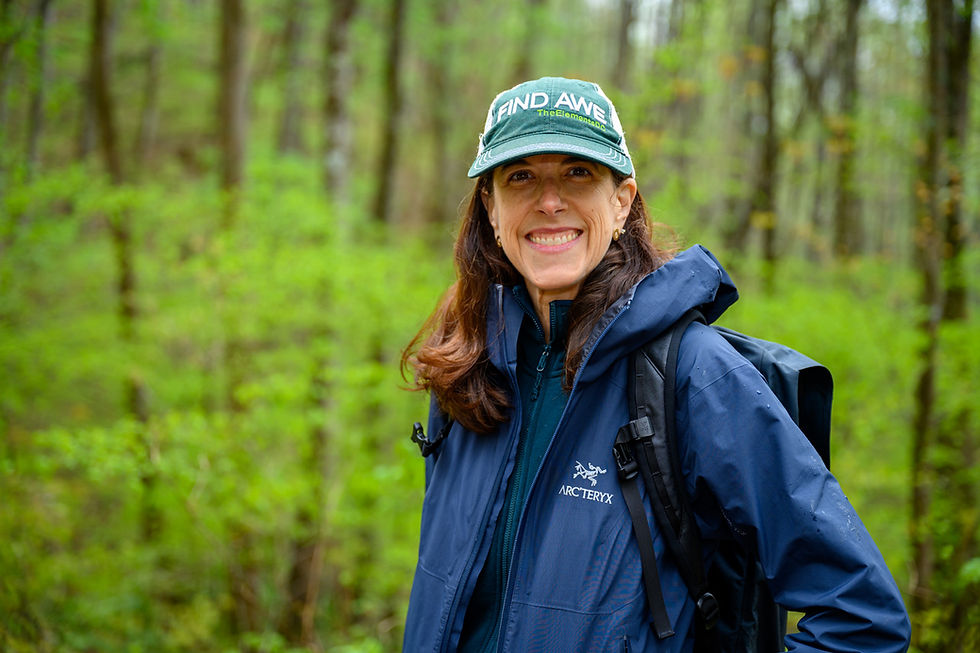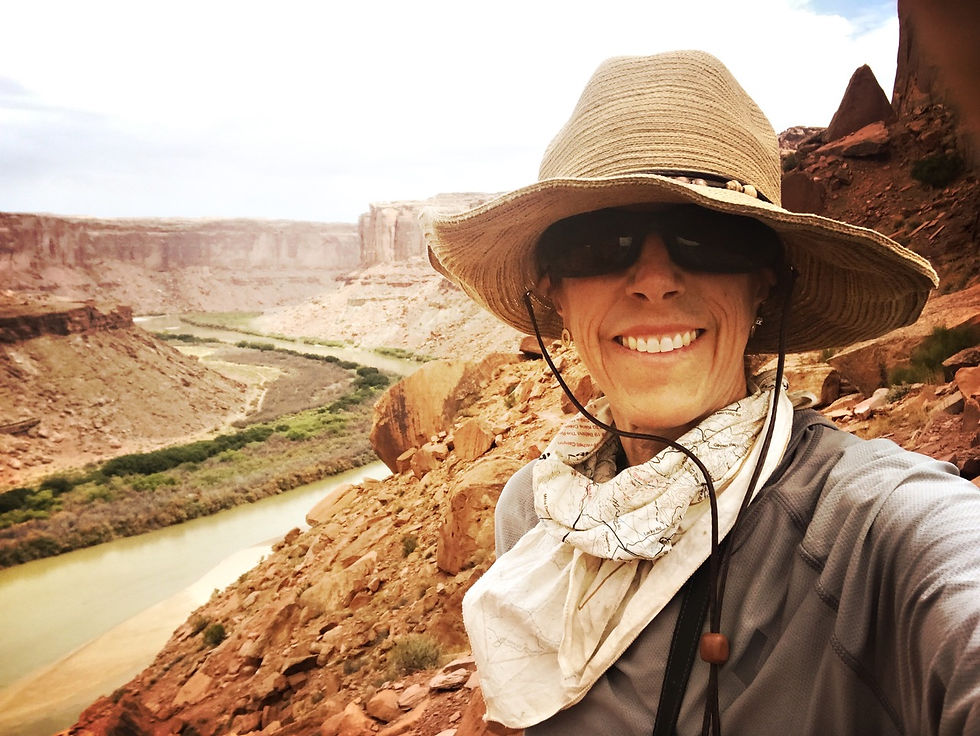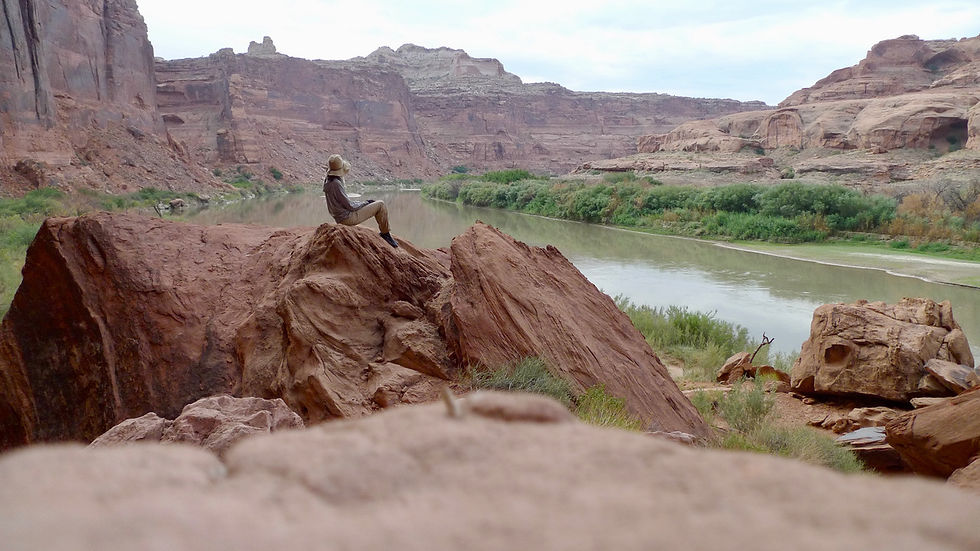Florence Williams on forest therapy, awe, and our relationship with nature
- hikingresearch
- Jan 19, 2024
- 4 min read
Florence Williams understands our fascination with nature. She was one of the first to introduce the Japanese practice of Shinrin-yoku to a worldwide audience in a 2012 article she wrote for Outside Magazine. She followed that up authoring The Nature Fix and Heartbreak, books that dive deeper into how nature impacts our mind, body, and spirit. She has explored the experience of awe in depth and helped explain what it is and how we can find it. She is a certified forest therapy guide offering walks and retreats all over, even guiding a walk on the Pinnacle Park Certified Forest Therapy Trail in Sylva, NC, the first and only certified trail in North Carolina, and one of just 20 in the world.

Florence and I started collaborating in 2013 as we both were learning and writing about forest therapy. She has a unique and informed view of forest therapy and the healing power of nature. If you have not read her books, you should. They offer a wealth of interesting insights. Florence answered a few questions on this topic recently.
You have observed the evolution of forest therapy over the past decade as it has become popular around the world, what are some things that stick out to you about this?
First of all, I think it’s notable and remarkable how much interest there is in forest therapy and in people wanting to connect more to nature in general. I think the pandemic had a large impact in terms of people being more open to seeking nature experiences closer to home and to finding joy and respite in rather ordinary local nature spaces as opposed to big vacation or national park travel. I also think the pandemic made it in some ways acceptable to talk about our mental health needs. I see mental health as a large factor in why people are seeking out time in nature and they are increasingly articulating that. Both of these trends play well into forest therapy: local nature and the “therapy” aspect of it. Finally, I think there is a growing recognition of the downsides of our digital lives and as we become more connected digitally we are also seeking ways to counteract that with authentic and analog experiences of many kinds, including nature.

What inspired you to become a certified guide?
I was attracted to the pedagogy of it and wanted to learn more about its roots in the quest and rites-of-passage literature, especially as circumstances in my own life led me to undertake a long wilderness solo that I wrote about in my book, Heartbreak: A Personal and Scientific Journey. I also do a lot of public speaking, and I was looking for a way to provide a more on-the-ground context for discussing the science behind why being in nature is good for us. Now I often add a nature-bathing experience to the talks I give. I also lead Nature Fix retreats that last several days, and the practices and exercises I learned in training inform that work a great deal.
You have the opportunity to interact with a large number of people seeking to connect with nature. What are some themes that you are observing? I’m observing generally a keen recognition that nature is good for us, and less skepticism around that idea. It seems this idea has a lot more “adherence” than it used to. I see a lot of young people wanting to seek out nature experiences as they struggle increasingly with their mental health challenges. I see a growing recognition of the dangers of digital life, loneliness, and climate despair. I see that people are looking for a way to access joy and hope.
How do you define awe and how often do you experience it?
I define awe as an encounter with something larger than yourself that kind of makes you stop and notice and even blow your mind to some degree. It could be a concept or a piece of art or a personal act of courage or witnessing birth or death or a vast natural phenomenon. The great thing about awe is that we can train ourselves to be more attuned to it, to find it more often, and to experience the wondrous benefits of feeling connected to something outside of ourselves. I try to spot a little bit of it every day just by trying to be more mindful of the beauty around me.

What is on the horizon as people continue to seek out new ways to connect with and experience nature?
Lots! I think and hope we will see more and better nature spaces built into our cities and communities. I hope schools and workplaces will incorporate more biophilic spaces. I really hope we will start to experience less obnoxious noise pollution from things like leaf blowers as more communities pass ordinances. I hope more clinicians will practice in nature spaces and prescribe time in nature to their patients. I hope we will preserve more land for biodiversity, climate resilience, and now, increasingly, human health. These are some of the great challenges and opportunities ahead.
Florence Williams is a journalist, author, speaker, and podcaster. She is a contributing editor at Outside Magazine and a freelance writer for the New York Times, New York Times Magazine, National Geographic, The New York Review of Books and numerous other publications. She is the PEN-award winning author of Heartbreak, The Nature Fix, and Breasts: A Natural and Unnatural History.





Comments